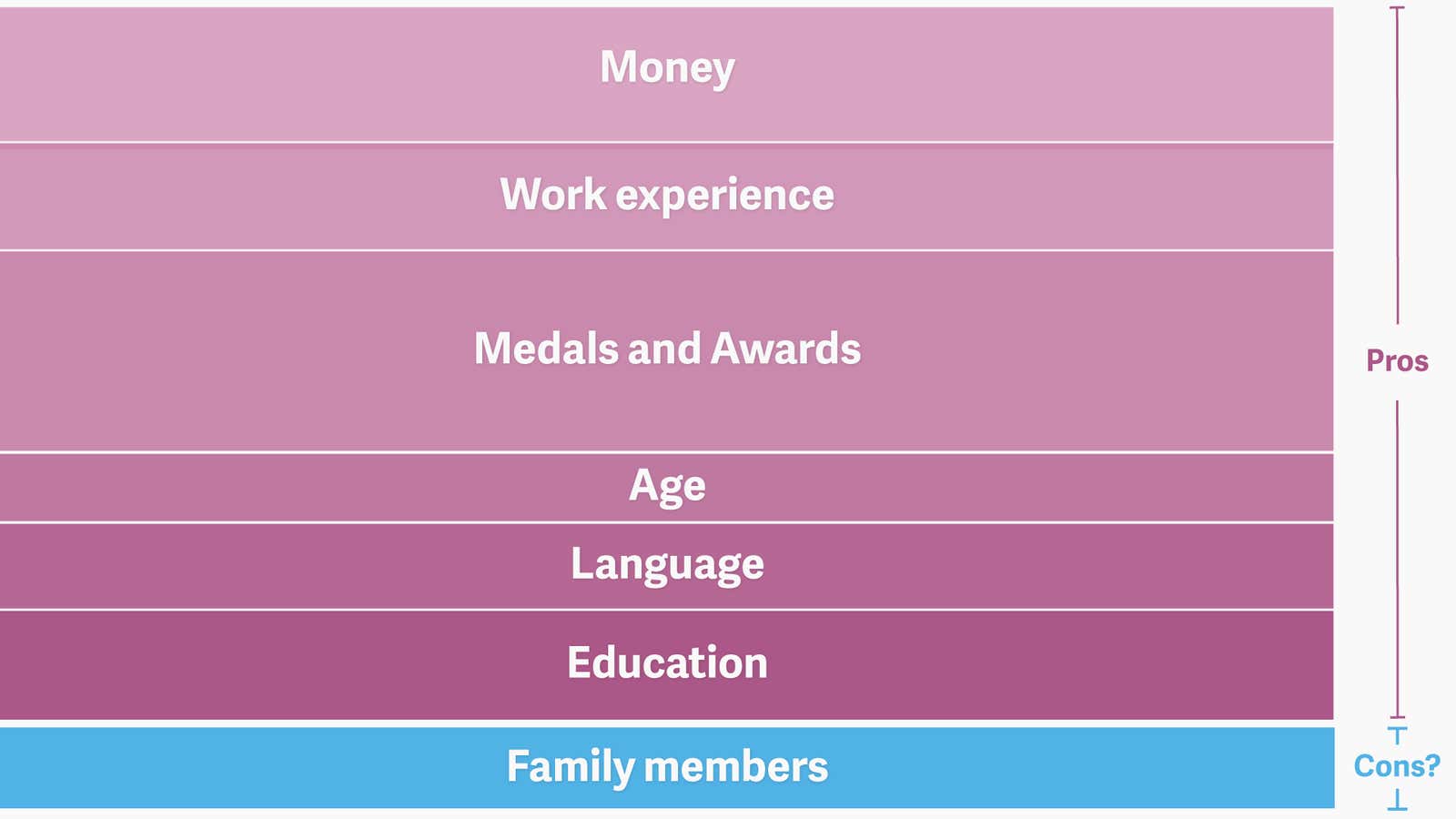Donald Trump’s proposed system of merit-based immigration—instead of family-based unification programs— assigns points to candidates based on factors like age, education and English skills. And a special clause in the bill (PDF, page 35) could actually take away points if the applicant tries to bring his or her spouse.
Drafters of the proposal said that it was modeled on similar systems used by Canada and Australia. But this is actually not how other countries treat family members under their points systems. In the five countries we examined that currently use similar points systems–Australia, Canada, Hong Kong, South Korea and New Zealand, spouses of applicants do not negatively impact the overall accumulation of points.
Here’s the text of the US merit-based immigration proposal:
Effect of spouse on accrual of points: If an applicant has a spouse who will be accompanying or following to join the applicant in the United States, the applicant will identify the points that the spouse would accrue under each of subsections (c) through (e) [age, education, English-skills] if he or she were applying for a points-based immigrant visa:
* If the number of points that would be accrued by the spouse is the same or higher as the points accrued by the applicant, the number of points shall not be adjusted;
* If the number of points that would be accrued by the spouse is lower than the number of points accrued by the applicant, the number of points accrued by the applicant shall be adjusted so that it is equal to the sum of 70% of the applicant’s points and 30% of the spouse’s points.
So if the applicant’s spouse is less competent on age, education and English-skills than the applicant, the applicant’s total points would be hurt by bringing the spouse. And if the spouse scores the same or higher, it makes no difference.
In other countries, highly-qualified spouses earn extra points in most cases. Australia awards 5 extra points (out of a total minimum of 80) if the spouse of the applicant has competent English, similar skilled employment as the applicant and is under 50. Canada awards up to 10 points (out of 67) for applicants who bring spouses that have studied or worked in Canada before, or that can speak good English or French. New Zealand also considers education, language skills and prior work experience of spouses as positive factors. Hong Kong, facing an aging population, even awards points for those who bring dependent children under 18.
By using merit-based points systems and assigning weights to different factors, countries signal to the world the desirable characteristics of immigrants. Trump’s proposed points system would seem to pose a difficult choice to people with families.
